I give thanks to God for this opportunity to be a part of this Prayer Retreat. I thank our father, His Eminence Dr Samuel Chukwuemeka Kanu Uche especially for his inspiring opening prayer this morning. I must thank our Bishop of Evangelism, Rt Rev Prof Samuel Sunday Obeka for the fellowship extended to me and the opportunity to share with this body the importance of Methodist social holiness for the reorientation of Nigerians on the values for lives and humanity.
The first Patriarch, Methodist Church Nigeria, His Pre Eminence, Professor Bolaji Idowu in his famous publication, Olodumare – God in Yoruba Belief, points to the idea of God as a reality and basis for values for lives and humanity, especially for Nigerians. Today, there are many challenges threatening Patriarch Idowu’s Olodumare, the Supreme Being’s religious prescription for values for lives, communities, and humanity. Religion with its intrinsic and oldness as humanity, shapes our community values and cultures ‘a framework by which we perceive events, and as a compass for navigating the future.’ However, Professor Simeon Ilesanmi on the dual faces of religion explained that the ‘salutary profile of religion in the private realm, its perceived role in the public arena has been less than uncomplimentary.’ Religion that is expected to ‘give Nigeria a clear advantage in its bid to build just, stable, and prosperous institutions’ lacks ‘correlative relationship between internalised values and human conduct.’ The truth is, the disease plaguing Nigeria is complex. Venerable Dr Akintunde Isaac-Sodeye in his book, ‘The Surgery Nigeria Needs’ explained that the reconstruction work of Nigeria ‘must be combined with open, heart-searching self-analysis,’ and personal reorientation. This heart-searching analysis and orientation must begin in the church.
Walter Brueggemann in his book, Praying the Psalms, ‘suggests that human beings regularly find themselves in one of the three places’: a place of orientation, a place of disorientation, and a place of new orientation. A place of orientation is when everything make sense in our lives through the lens of God’s revealed will and importance of living well; a place of disorientation is when ‘we feel we have sunk into the pit; a place of new orientation is when ‘we realize that God has lifted us out of the pit and we are in a new place full of gratitude and awareness about our lives and our God.’ The human life cycle starting through the times of orientation, a time of stability with God’s plan and purpose in our lives is not free from disorientation, lament, anger, frustration, and confusion, when we become ‘uncertain or insecure’ in obeying God’s basis for values for lives and humanity. The time of reorientation, a time of thanksgiving to God and covenant renewal calls for change in our individual and group characteristics for values for lives.
Clyde Kluckhohn defines value as “A conception, explicit or implicit, distinctive of an individual or characteristic of a group, of the desirable which influences the selection from available modes, means and ends of action.” According to him, ‘humans share biological traits and characteristics which form the basis for the development of culture, and that people typically feel their own cultural beliefs and practices are normal and natural, and those of others are strange, or even inferior or abnormal.’ Nigerians shares biological traits and characteristics which form the basis for the development of culture.
On his study of cultural values and others works. Hofstede Geert in ’Cultures and Organizations: Software of the mind,’ explained that’ there exists such a thing as a national culture. Nigerian’s religious culture and attitudes are based on the relatively few, religious values we hold about Olodumare, the Supreme Being. The question is, what are the effects of these religious values we hold as Nigerians? It is very sad to note that these religious values has no or little values for lives and humanity. Reorientation of Nigerians on the values for lives and humanity calls us to answer a number of national problems, that the religious value-based solutions are limited in practice, number, and nationally known.
The first question is, how do we define ourselves as Nigerians? Individualism verses collectivism are the two ‘opposite ends of a continuum that describes how people define themselves and their relationships with others.’ Based on the power distancing leadership relationship that operate at every level of Nigerian system, we are ‘more highly individualistic societies, the interests of individuals receive more emphasis than those of the group (e.g., the family, the company, etc.). The reflection is that ‘individualistic societies put more value on self-striving and personal accomplishment, while more collectivistic societies put more emphasis on the importance of relationships and loyalty.’ Nigerians are defined more by what we do as individualistic societies while in collectivistic societies; they are defined more by their membership in particular groups.
The second question is what type of orientation do we need in Nigeria? There are long-term and short-term orientations. While ‘long-term orientation is associated with thrift, savings, persistence toward results, and the willingness to subordinate oneself for a purpose. Short-term orientation is associated with less saving, a preference for quick results, and unrestrained spending in response to social pressure (often referred to in English as “keeping up with the Joneses”).’ Nigerians are used to short-term orientation, ‘a preference for quick results,’ – quick miracles, prosperity, promotions, powers, and pleasures. Resultantly, ‘the willingness to subordinate oneself for a purpose’ through greed, corruption, kidnapping, banditry goes on unabated. Short-term orientation preference for quick results continues to reduce value for human lives and Nigerians in general. Kidnappers put ransoms on human lives and on many occasions, ransoms are collected and lives are taken. Government officials, the elites and politicians awards same contracts numerous times especially construction of major roads and hospitals. Without any action taken or in some instances, contractor shows up for few weeks and later abandoned the projects, hence the roads become death traps and the hospitals become mortuaries. What happened to the money allocation meant for the procurement of arms and ammunition to defeat the menace of Boko Haram and the banditry especially in Northern Nigeria? No value for lives, loyal military men and women are killed unnecessarily because of lack of proper equipment and training, hence we are experiencing daily massacre of innocent lives and destruction of property.
Short-term orientation preference for quick results to become billionaires has turned many Nigerians to become political, social, and religious liabilities and in power tussle over the common wealth of the people. Preference for quick results continues to produce daily church self-made and anointed General Overseers, bishops, and Presidents, yet morality and religion is declining. Preference for quick results put more value on self-striving and personal accomplishment. Nigerians need a new orientation as collectivistic societies, putting more emphasis on the importance of relationships and loyalty to our fatherland and one another. Short-term cultural orientation and values for quick results promote a new dimension of indulgence rather than self- restraint, hence there is high value for free gratification of Nigerian desires. There is insatiable quest to enjoy life and having fun even at the expense of others right and needs. Nigerians need a reorientation to ‘believe that gratification should be curbed and that it should be regulated by strict social norms’ and religious discipline.
Effective reorientation of Nigerians on the values for lives and humanity need a long-term orientation than the current short-term orientation preference for quick results, prosperity and power, and unrestrained looting of common wealth and spending in response to social pressure. As mentioned earlier, ‘long-term orientation is associated with thrift, savings, persistence toward results, and the willingness to subordinate oneself for a purpose,’ serving one another in love.
Long-term orientation missionally resonates with John Wesley’s idea of ‘social holiness’ with the understanding that holiness is love, ‘the pursuit of the good of others.’ Social holiness ‘exists n the contexts of relationships with other people.’ Indeed, the purpose of the Methodist movement was to ‘spread scriptural holiness throughout the land.’ Nigerian Methodism as first international denomination in Nigeria is called to lead the nation from the present state of disorientation to new-orientation which is fundamental to Christian life. Methodist social holiness through long-term orientation is to challenge the problem of the leadership power distancing that shapes and guides our culture of national disorientation.
Brueggemann’s tripartite suggestion resonates with Wesley’s ‘countering a privatised notion of Christian faith.’ Reorientation of Nigerians on the values for lives calls for social holiness which goes beyond ecclesial koinonia because ‘it is within the socio-economic and political community that holiness of life is to be realised.’ In the ecumenical context, reorientation of Nigerians on the values for lives is best expressed through Wesley’s description of holiness as ‘renewal of the whole image of God’ ‘Olodumare,’ the Supreme Being among Nigerians. Methodist social holiness according to Wesley is not practise in ‘a purely individualistic way,’ a short-term orientation, a preference for quick results. Methodist social holiness is the willingness to subordinate oneself for a missional purpose. Methodist social ethics and holiness for the reorientation of Nigerians on the values of lives is about perfect love which entails ‘the transformation of the economic and political order, the establishment of Pentecostal commun(al)ism and the abolition of war,’ and all that tends to divide and impoverished us. WORTHY IS THE LAMB!

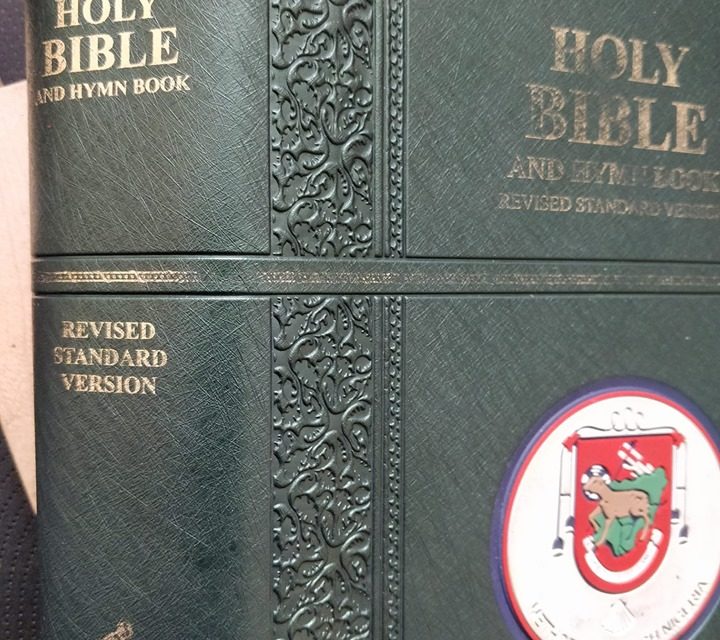
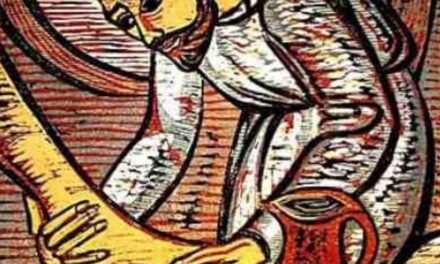
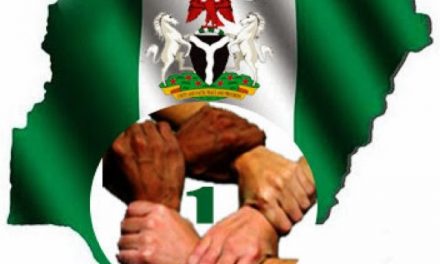
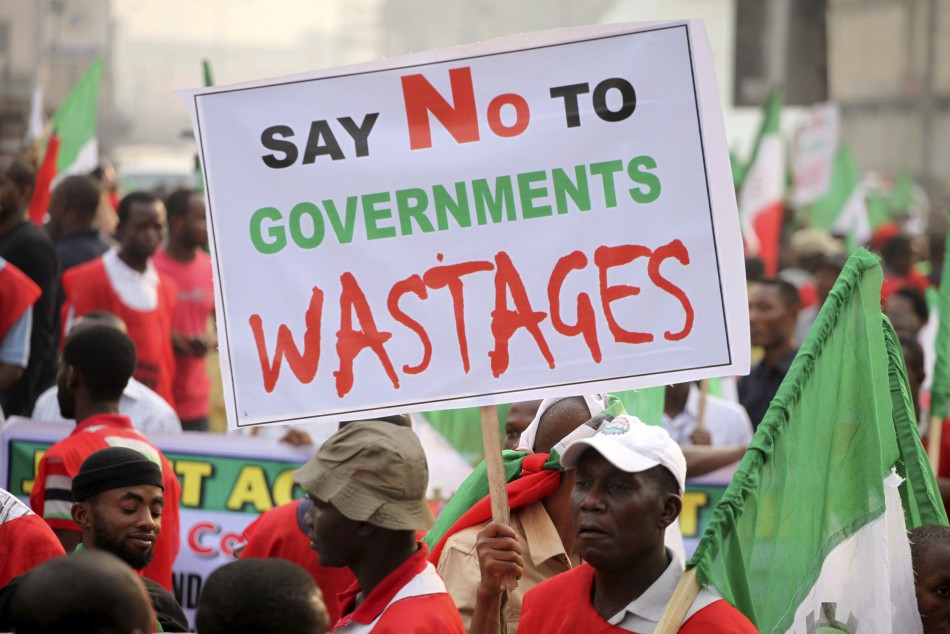
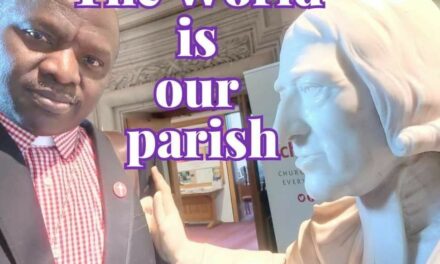





Recent Comments